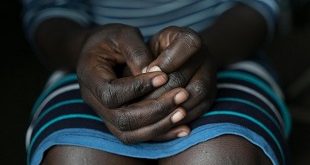
Kampala, Uganda | THE INDEPENDENT | Karamoja region is currently sitting on a time bomb of HIV/AIDS whose prevalence has gone up to 5.3%.
According to the Moroto district HIV/AIDS focal point person Ms Margie Lolem, the escalating rate of HIV/AIDS in the region is fueled by Karimojong cultures that most Karimojong don’t want to let go of.
Speaking to URN, Ms Lolem said HIV/AIDS which was previously non-existent has in the past few years gone up with Moroto district having 3.5% prevalence.
She attributed the escalating rate of the virus in Moroto district and the region at large to the persisting culture of inheriting women of those who die and the cause of their death is not known.
Ms. Margie said the Karimojong community still don’t believe that there is a disease called HIV/Aids and it kills in Karamoja, for any person who dies of HIV/Aids, they believe it was hunger and witchcraft that killed them.
“Our people still argue that there is no HIV/Aids in Karamoja, even when you’re talking to them, they still think people who die of HIV/Aids die because of hunger, alcohol and witchcraft but not HIV/Aids and this is very dangerous,” she said.
Ms. Lolem also pointed out poor attitude by the Karimojong towards the use of condoms saying the district health department has identified several corners where they have put condoms but nobody picks them to use, instead its children removing them and tie and use as catapult.
According to Ms Lolem, it is just of recent when they learnt of the claim by the youth that the condoms currently under distribution were short and small for them something she says they are following up to find the truth.
“We are sitting on time bomb of HIV/Aids because people don’t want to go for blood testing and those who are living with it don’t want to come out openly due to stigma,” she said.
Ms. Lolem has been urging district councils in the region to always allocate at least 10% of their local revenue to the fight against HIV/Aids.
“Whenever the district councils pass the budgets, there is no specific fund for HIV/Aids and most of the them depend on development partners, “ she said.
Joyce Nangiro, a member of village health team for Lotirir village in Loputuk parish in Nadunget sub county said that as the VHTS, they have tried to sensitise the masses against inheriting women of their beloved ones who die but many men don’t take the message serious.
“We have kept on telling our people to stop the culture of inheriting women of their relatives who die but they claim they can’t stop it because its their culture,” she said.
*****
URN
 The Independent Uganda: You get the Truth we Pay the Price
The Independent Uganda: You get the Truth we Pay the Price



